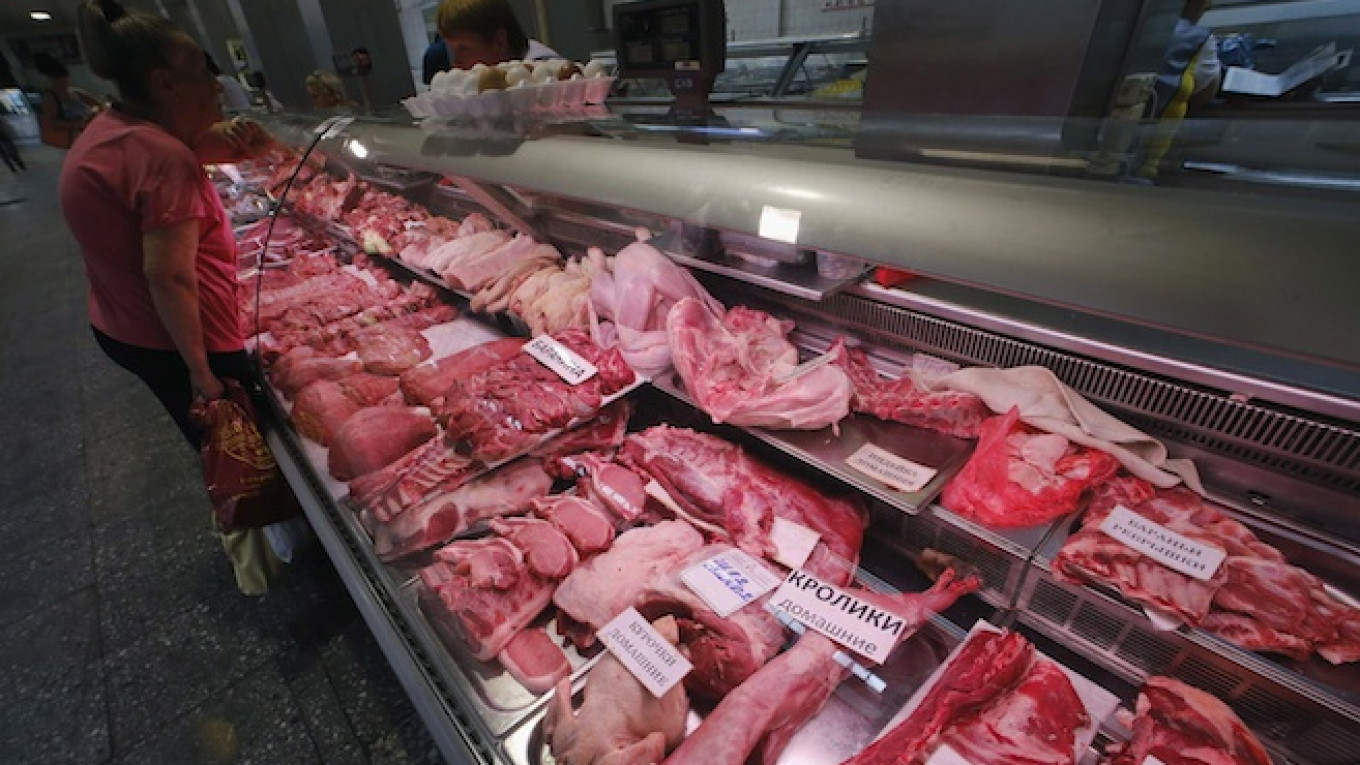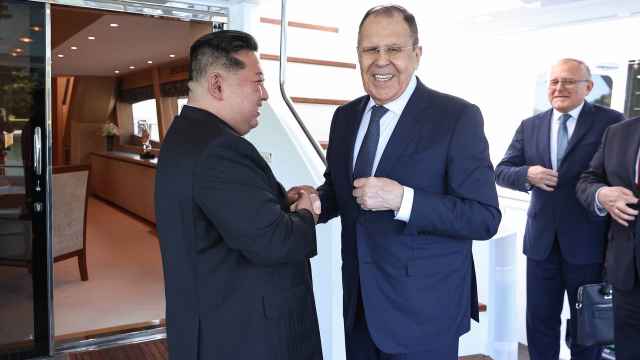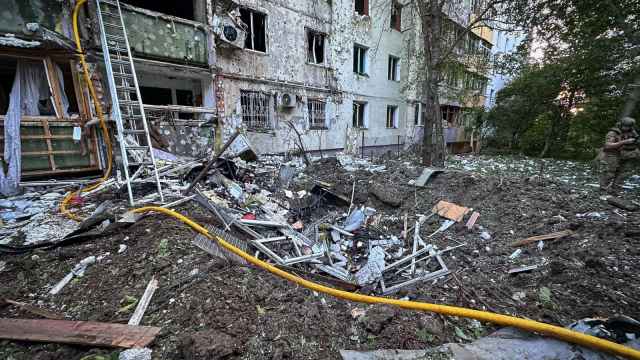SAO PAULO/BRASILIA — Russia's ban on many Western food products presents a massive opportunity for meat and grain exports from agricultural powerhouse Brazil and a smaller one for its Latin American neighbors.
About 90 new meat plants in Brazil were immediately approved to export beef, chicken and pork to Russia and the South American nation is already working to increase its exports of corn and soybeans sales to Russian buyers, Brazil's secretary of agricultural policy, Seneri Paludo, said Thursday.
Brazil's enthusiasm for Russia comes as Moscow's relations with the rest of the West are at Cold War-era lows. Russia banned all imports of U.S. food products and certain goods from the European Union, Australia, Canada and Norway after Russian President Vladimir Putin ordered retaliation for sanctions against Moscow over the Ukraine crisis.
In a further snub to Washington, U.S. intelligence leaker Edward Snowden was granted a three-year residence permit in Russia, his lawyer said Thursday. Brazil's relations with Washington also cooled after revelations last year that the U.S. spied on Brazilian President Dilma Rousseff's personal e-mails.
Russia's government met with various Latin American embassies on Wednesday to discuss the possibility of looking for more food providers in the wake of the its ban on many Western products, the head of Chile's Direcon trade body said Thursday.
As the world's top exporter of beef, chicken and soybeans, and one of the only countries in the world with land available to ramp up agricultural production, Brazil is a clear winner from the embargo. But smaller countries like Argentina and Chile could benefit, too.
"Russia has huge potential as a consumer of agricultural commodities," Paludo told journalists in Brasilia, comparing the "window" opened by the embargo to the "revolution" that Brazil's exports experienced when China's commodities market opened a decade ago.
Beef products topped Brazil's exports to Russia in the first six months of the year, Brazilian trade data showed. Brazil ships the vast majority of its soybeans to China and sent just 352,849 tonnes of soy to Russia between January and June.
The president of Brazil's animal protein association ABPA said Wednesday that Brazil could cover U.S. chicken exports to Russia and would increase exports by 150,000 tonnes per year, though increasing pork exports would be harder.
Hong Kong replaced Russia as the top buyer of Brazilian beef in 2013 but beef association Abiec said exports to Russia "were certain to rise" in the second half of the year.
Brazil's other agricultural exports to Russia include sugar, coffee, orange juice and bananas. In 2013, agricultural exports to Russia were worth $2.72 billion.
Moscow Stocking Up
In Moscow on Thursday, the middle and upper classes browsed through aisles neatly stacked with French cheeses, Australian wines and Spanish cured meats, in what may mark a last chance to stock up on all luxury goods except caviar for at least a year while the import ban lasts.
Chile, a possible alternative for European fruit, exported $643 million of goods to Russia in 2013, mainly processed foods,salmon and fruit, according to Direcon data. However, seasonal variations — the southern hemisphere is in mid-winter — may make full replacement tricky, fruit exporters said.
Chilean salmon producers are "prepared to satisfy the increase in demand in this market, or any other, in particular Russia," said Felipe Manterola, head of leading industry group SalmonChile.
Sergio Mendes, director for Brazil's cereal exporter's association Anec, said Brazil would need "a good bilateral agreement" with Russia before grain exporting companies would ship significant quantities of soy and corn there.
"The main barriers are relating to crop pests and bureaucracy," he said. Only a few specialized companies were currently exporting soy to Russia, Mendes said, though he acknowledged that Brazil is perhaps the only country that could substantially increase production if Russia's demand peaks.
Grain traders in Argentina said Brazil would benefit most from the food bans, though there may be a residual impact for Argentine commodities if Brazilian supplies are not enough to satisfy Russia's need for grains, which they said was unlikely.
"The biggest opportunities will likely be for oils and meals rather than grains, but we think that Russia will turn to Brazil as a supplier first, given that Brazil is part of BRICS," said one trader, referring to the economic bloc that also includes Russia, India, China and South Africa.
Russia has only bought small amounts of Argentine soymeal and soybeans in recent years, according to data from the agriculture ministry.
See also:
Russia Bans Food Imports From U.S., EU, Australia, Canada, Norway
A Message from The Moscow Times:
Dear readers,
We are facing unprecedented challenges. Russia's Prosecutor General's Office has designated The Moscow Times as an "undesirable" organization, criminalizing our work and putting our staff at risk of prosecution. This follows our earlier unjust labeling as a "foreign agent."
These actions are direct attempts to silence independent journalism in Russia. The authorities claim our work "discredits the decisions of the Russian leadership." We see things differently: we strive to provide accurate, unbiased reporting on Russia.
We, the journalists of The Moscow Times, refuse to be silenced. But to continue our work, we need your help.
Your support, no matter how small, makes a world of difference. If you can, please support us monthly starting from just $2. It's quick to set up, and every contribution makes a significant impact.
By supporting The Moscow Times, you're defending open, independent journalism in the face of repression. Thank you for standing with us.
Remind me later.






